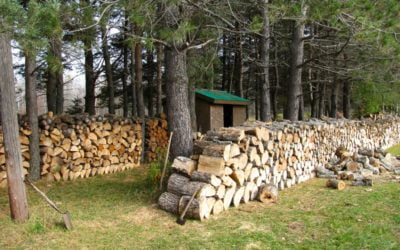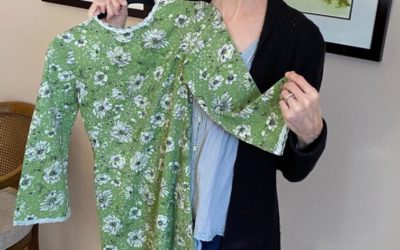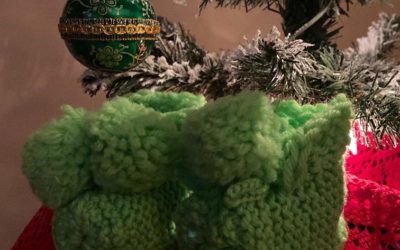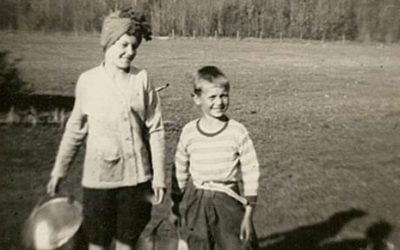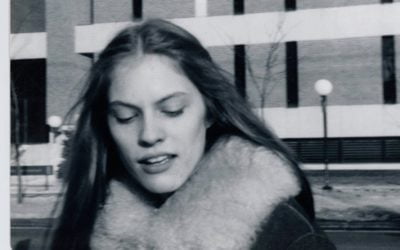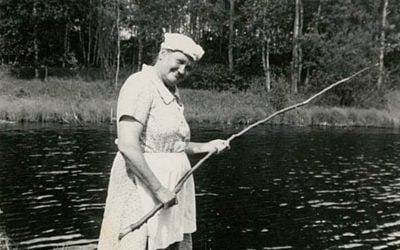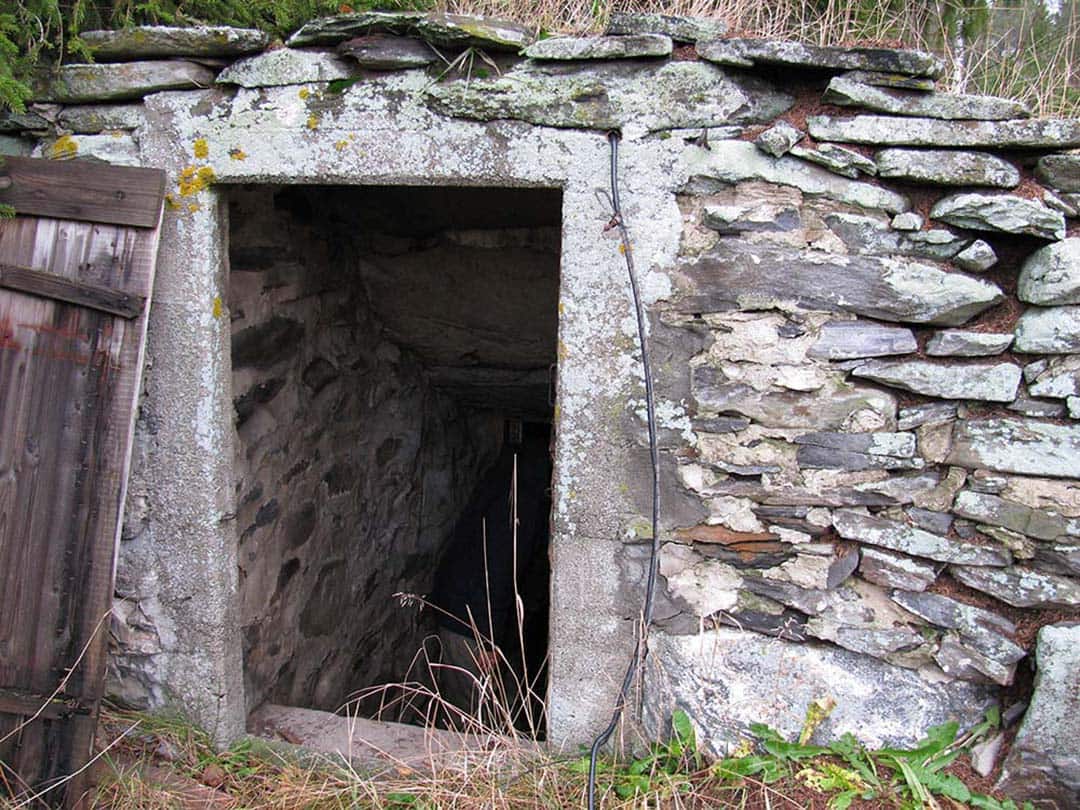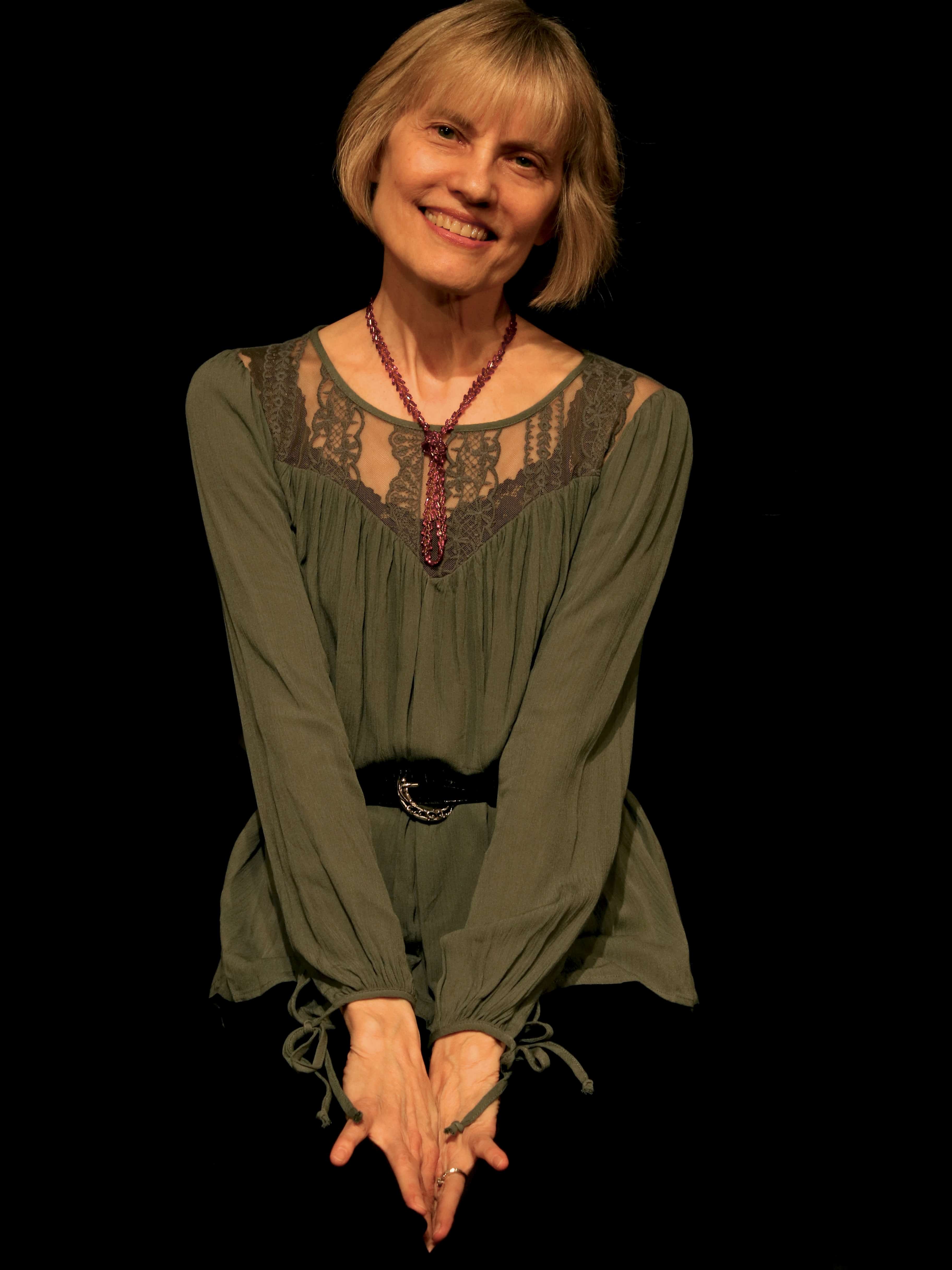Rocks & Roots
Donna Salli
Farm Boys: Lessons for the Pandemic
Every fall, my dad, Oiva, would hook his trailer to the tractor (a trailer he’d made by welding together a frame and rear axles from two different vehicles—an old car and a Model T Ford more than a hundred years old), then he and my mom would head off to “The Forty.” My dad would fell trees—chainsaw whining—and cut them up. They’d load the wood onto the trailer, and if they were lucky, haul it home without hanging up in a mud hole. But my father had grown up on a farm. He knew how to get free of a mud hole. High school educated, he worked as a miner when he grew up and loved his work! My dad’s youngest brother Arne, on the other hand, went to college—the only one among the siblings. He’d grown up on that same farm but became a college professor. He too loved his work. I know personally. I was a student in his classes. My dad and Arne have both passed on. You might think those two farm boys would have had little in common as adults. You would be wrong.
Little Green Dress: On Fashion, and Fraught Politics
The dress I’m holding in the photo is one I wore in my mid-teens. It’s homemade. I love its bell sleeves, that simple silhouette. Later, during my college years, my parents bought our family farm. The house had few closets, so Mom took garment bags full of outgrown clothing to my Salli grandparents’ house. The bags hung in a closet there for decades until an aunt found them and returned the things that had survived an invasion by moths. My mother then gave each of us adult kids the clothing that had been ours, the little green dress among them. Since rediscovering that dress, I’ve felt strangely anxious about it. I knew the dress had something to say, if it would just declare itself. A few days ago, I realized—anxiety is the point. The dress reminds me of my lifelong anxiety over fashion. It speaks to me of my fraught relationship with politics.
Sometimes, You Just Know: Thoughts on Mummu’s Booties
It’s December again, the month my grandmother, Mummu, passed away. This year marks forty years. In my linen closet is a small box that contains the baby booties pictured above. Mummu knitted and gave the booties to me when I was an awkward, skinny girl who wanted nothing as much as I wanted to become a mother. When she presented them, she said, “In case I die before you have a baby.” That was Mummu, forthright, down-to-earth. I never did have that baby. But I have kept the booties tucked away, and when I notice the box as I go to the closet for sheets, they remind me of her. The booties speak to me about disappointment, too, and the way life has soothed it—more broadly, the way life gradually prepares a person for what lies ahead. Sometimes, you just know that the future you’d imagined will not be yours, and you come to face that hard fact with acceptance, even a sort of embracing.
Drinking Kahvi with the Uncles: Keeping Our Stories Alive
Many years ago, I went home to our family farm to visit my mom and dad. While I was there, my mother’s brothers Ernie and Bill came by. We fell into telling family stories over kahvi, which is Finnish for “coffee.” We sat a long time at that table, reminiscing and laughing as the blues and grays of evening began to filter in through the window. It struck me that no one turned a light on—no one wanted to break the spell. My uncles were educators and good storytellers. There was a playful impertinence in their eyes as they told their stories, and I understood it completely. Drinking kahvi with the uncles, I saw again what I’d always known: playful impertinence runs in our family. It’s why I write, why I write what I write—more than that, why I write poetry, which to much of the world seems a waste of time.
What You Dare Not Say
I feel ridiculous, and the feeling grows each day. I feel presumptuous and ridiculous, to think that as a writer I have anything worth saying when oceans are rising, the planet is burning, and the TV screen pulsates with images of people visiting horror upon horror on one another. Still, something insists that my fingers pick up the pen, and when I do, I listen, and I think, and now I have come to one conclusion. When there is nothing worth saying, say what you dare not say.
Hilda Begat Rauha: On Women, Changing the World
The woman in this photo, with her fishing pole and her funny cap, is my maternal grandmother, Hilda. The picture was taken on a family picnic when my mother, Rauha, and her closest siblings were young adults. They had to walk a distance to get to that lake, over rough terrain with no path. Notice that my grandmother is wearing a dress, to a picnic, and even an apron. But don’t be deceived. This simple-looking woman from backwoods Michigan was more complicated than the image suggests, and she knew herself to be capable of changing the world—yes, I said changing the world. She would have called herself traditional, but her “traditional” life was the garden my more liberal life naturally grew in. To twist familiar scripture a bit: Hilda begat Rauha, begat Donna.

